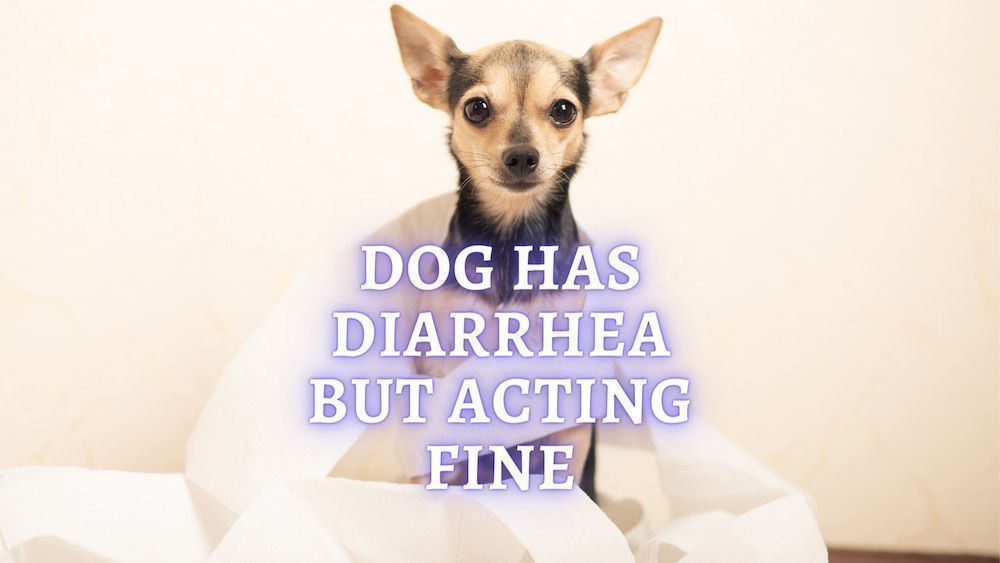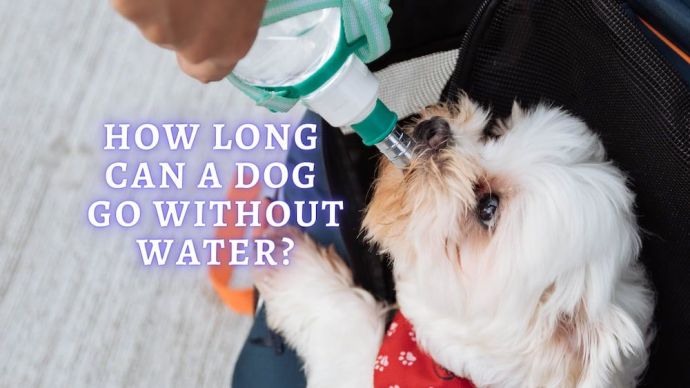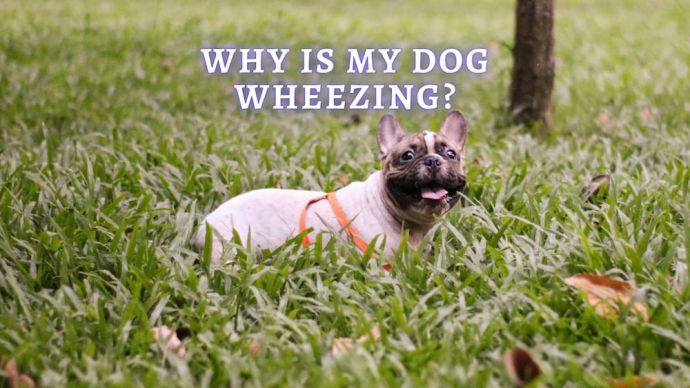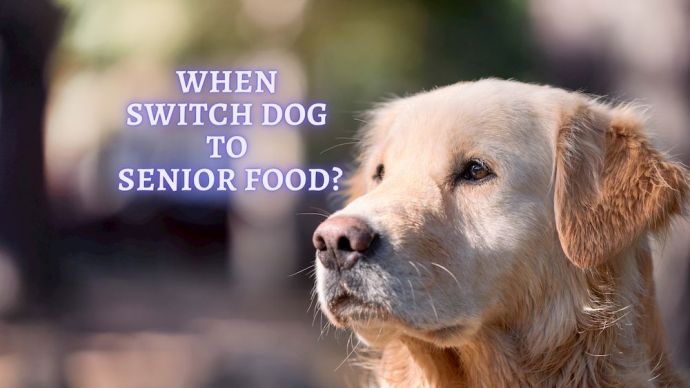My Dog has Diarrhea But is Acting Fine (Vet Approved Advice)
Written by:
Author: Scott Jeffrey
Scott is a professional blogger with 12+ years of experience in writing, and holds an MA in anthropology. He has two cats as housemates. Also, Scott is passionate to research on pet-related topics such as dog training, puppy feeding, and cat health.
View all 63 articlesLearn about our editorial process and veterinary review board.
Reviewed by:
Veterinary review
by Dr. Sara Ochoa
Dr. Sara Redding Ochoa is a veterinarian with many years of experience and higher education. During her time in veterinary school she was able to learn form some of the most well-known veterinarians from all over the world. Sara lives happily with her husband Greg and her babies Ruby the schnoodle, and Bam-Bam her bunny. Dr. Sara Redding Ochoa has a passion and love for animals that makes her a wonderful asset to our team.
View all 13 articlesLearn about our veterinary review board
Viewed: 500
Updated on: 12/22/2022
Diarrhea can be prevalent in dogs and can also be one of the first symptoms pet owners worry about before taking their pet to the vet. It’s essential to keep an eye on your dog’s diarrhea, as it can signify something more serious. However, if your pet is otherwise acting normal, there are a few symptoms to watch for and some home remedies you can try to help resolve the problem.
This article will explain some common reasons for indigestion, what you can do at home to help your pet, and when it’s time to visit the vet.
Types of Diarrhea in Dogs and Puppies
Diarrhea is defined as watery, loose, or runny stools. It can be caused by ingesting something they shouldn’t have, a virus or infection, stress, or even a change in food. Acute indigestion is sudden and short-lived, while chronic diarrhea lasts more than three weeks.
Chronic diarrhea in dogs:
Suppose your pet has experienced indigestion for more than three weeks, or they have experienced ongoing diarrhea problems for several weeks. In that case, this can be a sign of more severe pain, and you should take your dog to the vet for an examination.
There are many possible causes of chronic diarrhea, including:
- Intestinal parasites like roundworms, hookworms, or whipworms
- Parasites can cause indigestion by damaging the lining of the intestines, leading to inflammation and irritation. Your vet will be able to diagnose parasites by doing a stool sample.
- Infectious diseases such as parvovirus or distemper
Such severe diseases can be deadly and dehydrate your pet, so it’s essential to get your dog to the vet ASAP.
Bacterial/viral infections
Bacterial infections often target the stomach, small intestine, or colon and can be caused by Salmonella, E. coli, or Campylobacter. Yersinia infections can be severe, so your dog must visit the veterinarian as soon as possible.
Inflammatory bowel disease (IBD)
This condition causes inflammation of the intestines and can be very painful for your pet. IBD is often the result of an immune system reaction to food, bacteria, or parasites.
Cancer
Cancerous tumors in the intestines can cause chronic indigestion. If you notice any changes in your dog’s stool, such as blood or mucus, it is essential to have your pet examined by a veterinarian if you notice any lumps in your dog’s body, blood, or mucus.
Exocrine pancreatic insufficiency (EPI)
This is a condition where the pancreas doesn’t produce enough enzymes to digest food properly. This can lead to malabsorption of nutrients and chronic diarrhea. Your vet can diagnose this with a blood test and fecal elastase test.
Food allergies or food intolerance
Many pets experience allergies to common ingredients in their food or may be intolerant to certain foods. This can often be the cause of chronic indigestion. Your vet may recommend a food trial to determine if your pet has a food allergy or intolerance.
READ MORE: Best Dog Food for Allergies: Review & Buyer’s Guide
Certain medications:
Non-steroidal anti-inflammatory drugs (NSAIDs), such as ibuprofen, can cause stomach ulcers and gastrointestinal bleeding, which can lead to chronic diarrhea.
Stress:
Like humans, pets can experience stress that can lead to several health problems, including diarrhea. If your dog is involved in any stress, such as moving to a new property, interacting with a new pet or welcoming a baby to the family, or even changing their daily routine, this can lead to indigestion.
Chronic renal failure
Renal Failure can cause a build-up of toxins in the blood, leading to several health problems, including diarrhea.
Diabetes mellitus:
Diabetes can also cause digestion problems, which can lead to diarrhea.
As you can see, there are many possible causes of chronic indigestion. If your pup has chronic loose stool, you must visit your vet to find the underlying cause and get treatment. Diarrhea can often be an early sign of a more serious health effect, and receiving the intervention of your vet early could lead to more treatment options for that severe condition.
Acute diarrhea
Acute diarrhea is often caused by a sudden change in diet, eating something they shouldn’t have, or stress. Accute conditions in pets can be caused by viral or bacterial infections. If your dog has acute diarrhea, the best thing to do is watch them closely and see if the indigestion goes away on its own. If it lasts more than a day or two, or if your pet shows any other signs of illness, it’s time to visit the vet.
How to Manage Acute Diarrhea?
If you notice that your pet is experiencing indigestion, the first thing you should do is remove all food and water for 12 hours. This will give their stomach a chance to rest. After 12 hours:
- Offer small servings of water every few minutes. If your pet keeps the water down, you can slowly start to introduce small amounts of food.
- Stick to bland foods like boiled chicken or rice.
- Avoid fatty, spicy, or sugary foods.
If your pet still has indigestion after 24 hours, it’s time to visit the vet. They will likely recommend some tests, such as a fecal exam, to rule out any underlying health conditions. If your dog is dehydrated, it may also need IV fluids.
Symptoms of Diarrhea in Dogs
The most common symptom of diarrhea is, of course, loose or watery stool. You may also notice that your pet is going more frequently than average or that their stool is bloody or mucousy. Other symptoms can include:
- Abdominal pain
- Bloating
- Weight loss
- Lethargy
- Dehydration
- Fever
- Vomiting
If you notice any of these symptoms in your pet, you must visit the vet immediately. Diarrhea can rapidly cause dehydration, which can be very dangerous, especially for puppies and seniors.
What Causes It?
Many changes can cause diarrhea in dogs. Some causes are more severe than others. The most common causes include:
- Dietary changes or intolerance
- Infections (viral, bacterial, parasitic)
- Stress
- Certain medications
- Chronic health conditions
If your dog has sudden onset diarrhea, it is most likely due to a dietary change or something they ate that didn’t agree with them. It could also be due to mental stress causing stomach upsets. There is no reason to start worrying about your pet unless you notice other symptoms. If diarrhea persists for more than a day or two, it’s time to visit the vet to rule out any other possible causes.
What Can I Give My Dog For Diarrhea?
If your dog has acute diarrhea, there are some things you can do at home to help them feel better. Starting with a 12-hour fast and then introducing a probiotic could be helpful. Fiber and probiotics work wonders for diarrhea!
A brief fasting period is likely all that is required to get your dog’s poop back to normal. Loose stools can generally resolve themselves in an adult dog with bland food. Your dog’s diet can return to normal after the dog diarrhea symptoms subside.
Bathing your pet can also be helpful if they have diarrhea. This will help remove any bacteria that could be making them sick. Just be sure to use a mild, dog-safe shampoo.
Adding pumpkin to food or sticking with a very bland diet can be crucial to getting your dog back on the mend. Their normal food should be avoided until the watery stools subside. Stick to a bland diet until the symptoms pass, then you can put them back on the same food.
RELATED: Best Shampoo for Shih Tzu
What to do if my dog has diarrhea but acting normal?
If your dog has sudden onset diarrhea and is otherwise acting normal, the best thing to do is watch them closely. If their diarrhea persists over two days, it’s time to visit the vet. If your dog shows any other signs of illness, such as vomiting, lethargy, or fever, it’s also time to see the vet immediately. It’s usually likely that if your dog continues acting normally with diarrhea, that is not anything too serious, but you’ll want to make sure. Diarrhea that is not serious could sap their energy for a few hours as it is a reaction to something they ate or a temporary allergic reaction.
READ MORE: How Many Times a Day Should a Dog Poop? (Vet Advice)
Essential Things to Consider When Your Dog Has Diarrhea:
If you notice that your dog has diarrhea, you need to start looking at changes in your house and potential environmental causes. Check the garbage, cleaning supplies, and other places where they could have gotten into something they shouldn’t have. If there’s any possibility that your dog has ingested something poisonous, call the vet or emergency animal clinic immediately.
When It’s Time to See a Vet?
If your dog has eaten something poisonous, has blood in its stool, is vomiting, or has diarrhea for a span beyond 24 hours, it’s time to see the vet. These could be symptoms of a severe health problem that must be addressed immediately. Veterinary care may be needed to find the underlying medical problem. Over-the-counter medications should be avoided before you seek immediate veterinary attention.
Diarrhea in Dogs Prevention
Preventing diarrhea will often mean sticking to a balanced diet for dogs and ensuring that you can cut down on the eternal stimulus in your house that could cause diarrhea. Avoiding sudden dietary changes, feeding your dog smaller meals more often, and avoiding high-fat foods can all help prevent diarrhea. You can also consider supplementing if you have a pet that has had digestion or diarrhea problems. Probiotics, enzymes, and fiber can all be helpful in preventing it. If you have a puppy, keep an eye on their feces to ensure there are no issues. If you notice any changes, visit the veterinarian as soon as possible.
FAQ
Why does my dog have diarrhea but act normal?
A dog acting normal with diarrhea is usually experiencing a mild case of the condition. The diarrhea is likely due to a dietary change or something they ate that didn’t agree with them. If diarrhea persists for more than a day it’s time to visit the vet to rule out any other possible causes. If your dog is not showing other symptoms and your dog’s diet has not changed, it might take some time before you can determine why they have diarrhea but acts fine.
Why does my dog have diarrhea with no other symptoms?
Diarrhea can often be a precursor to other serious health problems in dogs, so it’s essential to pay close attention to your dog if they develop this symptom. If the symptoms of a stomachache aren’t relieved in two days, it’s time to see the veterinarian. If your dog has had chronic loose stool for more than a day or two, it’s necessary to visit the vet to rule out any other possibilities. The doctors provide veterinary advice to find the underlying disease or dietary intolerance that may be causing the serious illness.
How long is it safe for a dog to have diarrhea?
Your dog should be examined for more than 48 hours if they have diarrhea. After 72 hours, they may start to get severely dehydrated. Dog diarrhea can make it difficult for them to gain nutrients from food or cause extra stress to a dog’s system.
How long should diarrhea last in dogs?
If your dog has sudden onset diarrhea and is otherwise acting normal, the best thing to do is watch them closely. Most of the time, it will clear up on the first day. If you have fasted them for 12 hours and they can keep water down without vomiting, check their stool, and you will likely see that it has improved. You can also consider giving them a bland meal and waiting to see how they process it. If it has been more than 24 hours since your dog had a solid bowel movement, you may want to continue monitoring them, fasting them, and giving them a bland diet. After 48 hours, you will want to make an appointment with the vet as your pup is experiencing the symptoms of chronic diarrhea. Stick to a set diet for your dog’s gut and stick with veterinary advice on foods if your dog has a new food intolerance.
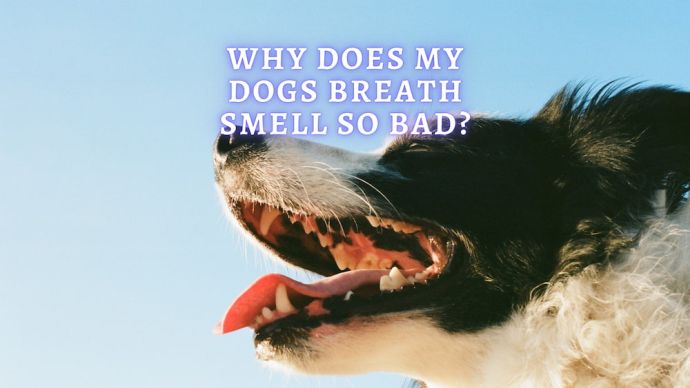 Dog Care Dog Bad Breath: Why Does My Dog’s Breath Smell So Bad? (Vet-Approved Advice)
Dog Care Dog Bad Breath: Why Does My Dog’s Breath Smell So Bad? (Vet-Approved Advice) - 63
- 0
 Dog Care Do Dogs Get Tired of Barking? 10 Common Reasons for Dog Barking and How to Stop It
Dog Care Do Dogs Get Tired of Barking? 10 Common Reasons for Dog Barking and How to Stop It - 308
- 0
 Dog Care Why Do Dogs Roll in the Grass? 4 Most Common Reasons and How To Stop It
Dog Care Why Do Dogs Roll in the Grass? 4 Most Common Reasons and How To Stop It - 58
- 0
 Dog Veterinary Tips Why is my Dog throwing up: Causes and Preventing (Veterinary Advice)
Dog Veterinary Tips Why is my Dog throwing up: Causes and Preventing (Veterinary Advice) - 21800
- 5
 Dog Care My Dog Keeps Scratching His Mouth: Reasons Why Your Dog Scratching Face
Dog Care My Dog Keeps Scratching His Mouth: Reasons Why Your Dog Scratching Face - 17170
- 1
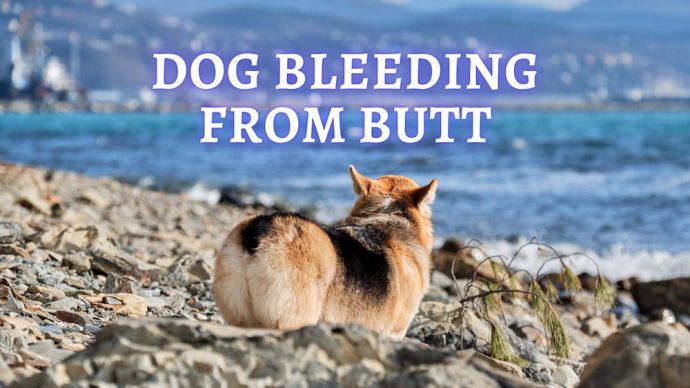 Dog Care Why Is My Dog Bleeding From Its Butt? Causes and treatment of rectal bleeding in the dog
Dog Care Why Is My Dog Bleeding From Its Butt? Causes and treatment of rectal bleeding in the dog - 15121
- 0









